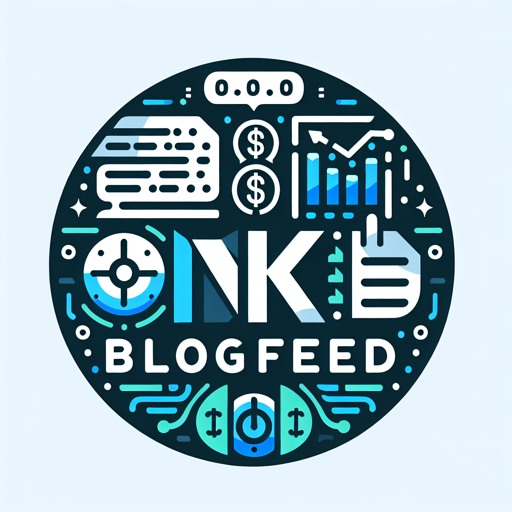Setting career goals is a fundamental step in shaping your professional journey. When you take the time to define what you want to achieve, you create a roadmap that guides your decisions and actions. Without clear goals, you may find yourself drifting through your career, reacting to opportunities rather than proactively pursuing them.
By establishing specific objectives, you not only clarify your aspirations but also enhance your focus and motivation. This clarity can lead to increased job satisfaction and a sense of purpose in your work. Moreover, career goals serve as benchmarks for measuring your progress.
They allow you to evaluate where you stand in relation to your aspirations and help you identify areas for improvement. When you set goals, you create a framework for accountability, pushing yourself to stay committed and engaged in your professional development. This process can be incredibly empowering, as it encourages you to take ownership of your career path and make informed decisions that align with your long-term vision.
Key Takeaways
- Setting career goals is important for providing direction and motivation in your professional life.
- SMART career goals are specific, measurable, achievable, relevant, and time-bound.
- Identifying your strengths and weaknesses can help you set realistic career goals and develop a plan to achieve them.
- Creating a plan to achieve your career goals involves breaking them down into smaller, manageable steps.
- Overcoming obstacles and staying motivated is crucial for staying on track towards achieving your career goals.
- Revisiting and adjusting your career goals is important as your circumstances and priorities may change over time.
How to Set SMART Career Goals
To effectively set career goals, consider using the SMART criteria: Specific, Measurable, Achievable, Relevant, and Time-bound. Each element of this framework plays a crucial role in ensuring that your goals are well-defined and attainable. Start by being specific about what you want to achieve.
Instead of saying, “I want to advance in my career,” articulate a clear goal such as, “I want to obtain a managerial position within the next two years.” This specificity helps you visualize your target and understand the steps needed to reach it. Next, make sure your goals are measurable. This means establishing criteria for tracking your progress.
For instance, if your goal is to improve your skills, you might set a measurable target like completing three professional development courses within the next year. This allows you to assess your advancement and stay motivated as you see tangible results. Additionally, ensure that your goals are achievable; they should stretch your abilities but remain realistic.
Setting unattainable goals can lead to frustration and demotivation, while achievable goals foster a sense of accomplishment.
Identifying Your Strengths and Weaknesses

Understanding your strengths and weaknesses is essential for setting effective career goals. Take the time to reflect on what you excel at and where you may need improvement. Your strengths are the skills and attributes that set you apart from others; they can be leveraged to help you achieve your career objectives.
For example, if you have strong communication skills, consider how you can use this strength to pursue roles that require effective collaboration or leadership. Conversely, acknowledging your weaknesses is equally important. This self-awareness allows you to identify areas for growth and development.
If you recognize that time management is a challenge for you, setting a goal to improve this skill can enhance your overall productivity and effectiveness in the workplace. By being honest with yourself about both your strengths and weaknesses, you can create a more balanced approach to your career planning, ensuring that you capitalize on what you do well while actively working on areas that need improvement.
Creating a Plan to Achieve Your Career Goals
Once you’ve established your career goals and identified your strengths and weaknesses, it’s time to create a detailed plan for achieving them. Start by breaking down each goal into smaller, actionable steps. This makes the process less overwhelming and allows you to focus on one task at a time.
For instance, if your goal is to secure a promotion, outline the specific actions required, such as seeking mentorship, taking on additional responsibilities, or enhancing your skill set through training. In addition to outlining steps, consider setting deadlines for each action item. This creates a sense of urgency and helps keep you accountable.
Regularly review your progress and adjust your plan as needed. Flexibility is key; sometimes unexpected opportunities or challenges arise that may require you to pivot or reassess your approach. By maintaining an adaptable mindset, you’ll be better equipped to navigate the complexities of your career journey while staying aligned with your overarching goals.
Overcoming Obstacles and Staying Motivated
As you pursue your career goals, it’s inevitable that you’ll encounter obstacles along the way. Whether it’s facing setbacks in job applications or dealing with workplace challenges, resilience is crucial for maintaining momentum. One effective strategy for overcoming obstacles is to cultivate a positive mindset.
Instead of viewing challenges as roadblocks, try to see them as opportunities for growth and learning. This shift in perspective can help you remain motivated even when faced with difficulties. Additionally, surrounding yourself with a supportive network can significantly impact your ability to stay motivated.
Seek out mentors, colleagues, or friends who can provide encouragement and guidance during tough times. Sharing your goals with others not only holds you accountable but also allows you to gain valuable insights from their experiences. Remember that setbacks are a natural part of any journey; what matters most is how you respond to them.
By maintaining a proactive attitude and leveraging your support system, you’ll be better equipped to navigate challenges and keep moving forward.
Revisiting and Adjusting Your Career Goals

Reflecting on Your Progress
Take time to reflect on your progress at least once a year and assess whether your goals still resonate with where you want to go in your career. This reflection will help you identify areas that need adjustment and ensure you’re on the right path.
Embracing Change and New Opportunities
Life circumstances change, interests shift, and new opportunities arise. Being open to adjusting your goals allows you to adapt to these changes effectively. Consider what you’ve learned along the way and how certain experiences have shaped your perspective or led you to discover new passions.
Refining Your Objectives and Celebrating Success
Use your insights to refine your objectives and set new targets that reflect your current aspirations. Don’t forget to celebrate the milestones you’ve achieved thus far, as acknowledging your accomplishments can boost your confidence and motivate you to continue striving for success. By embracing the dynamic nature of career planning, you’ll be better positioned to navigate the ever-changing landscape of the professional world while pursuing fulfillment in your work life.

